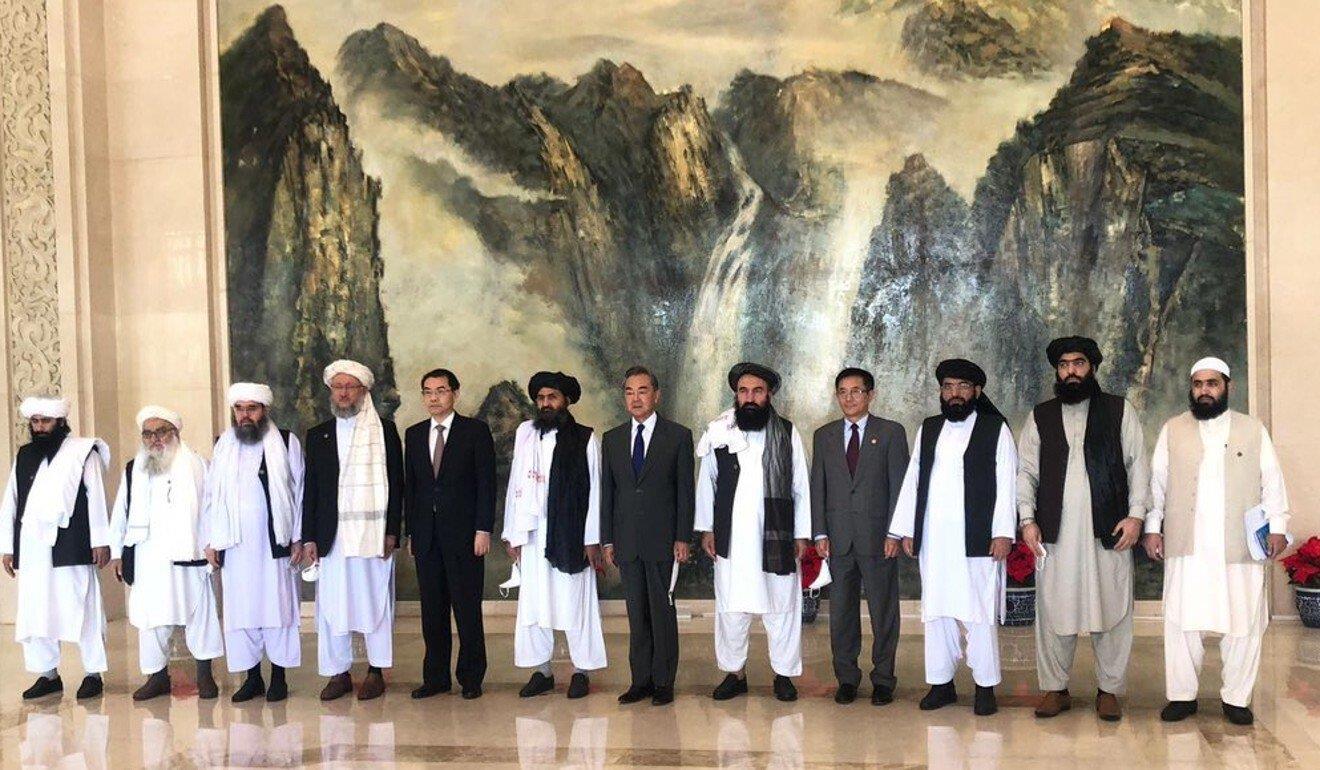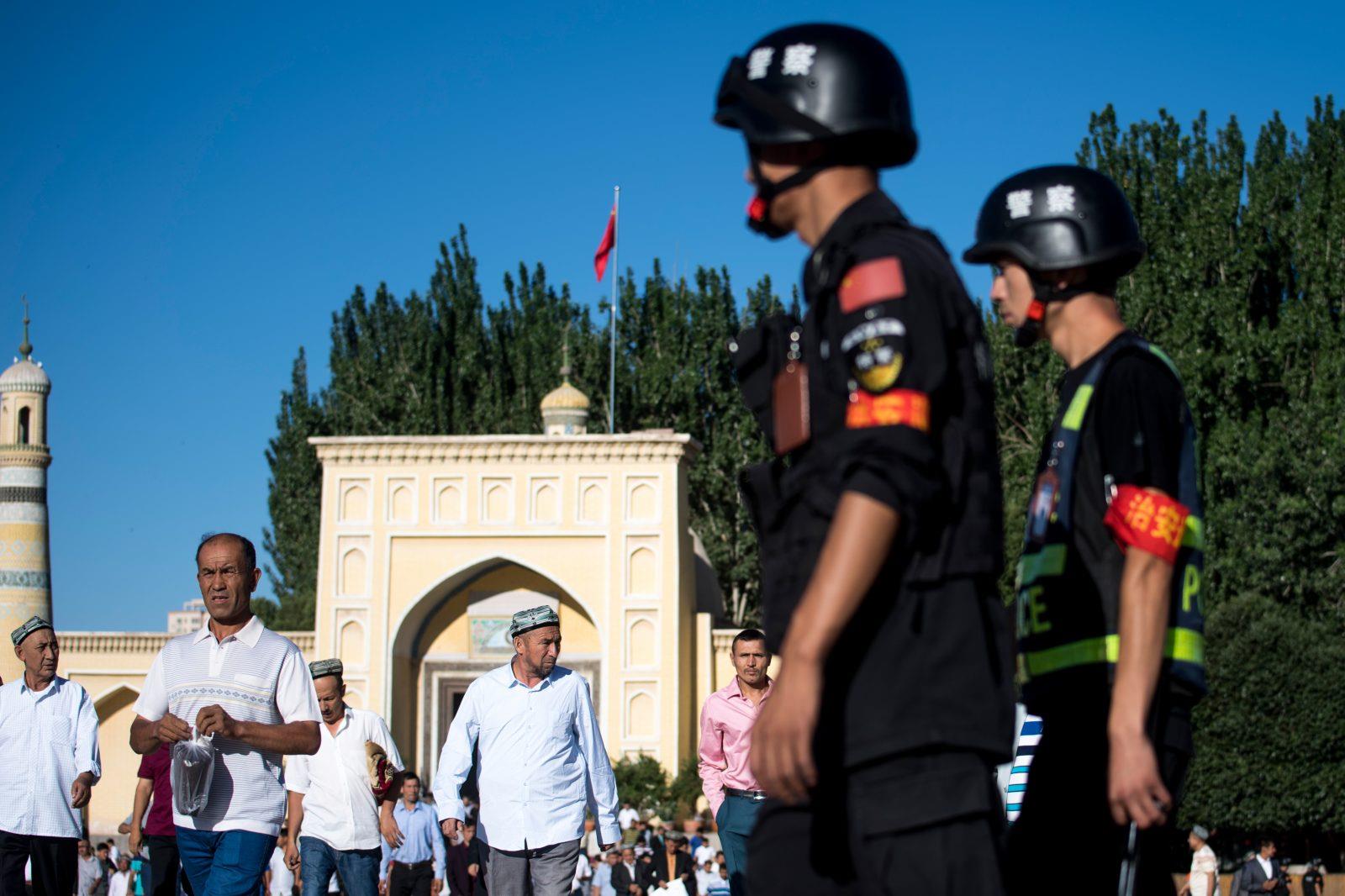(MENAFN- Asia Times)
Even without formally recognizing Afghanistan's Taliban regime, Beijing is making fast inroads into the war-torn country effectively governed by the United States until last year's ignominious retreat and withdrawal.
With the US and West now firmly focused on the war in Ukraine and the Afghan“forever war” a fast-fading memory, China is now helping the Taliban consolidate its power in exchange for guarantees it won't allow terrorist groups, including the anti-China East Turkestan Islamic Movement (ETIM), to operate from its territory.
In a recent multinational meeting in the ancient town of Tunxi that gathered representatives from Afghanistan's neighbors, namely Russia, Pakistan, Iran, Tajikistan, Turkmenistan and Uzbekistan, China asserted that Afghanistan must not be excluded from the international community.
Hitting out the US for creating a situation that has left about 90% of the Afghan population without sufficient food, according to the most recent UN estimates, the meeting's participants agreed to launch a“Tunxi Initiative” to alleviate local hunger and deprivation.
But China's primary interest in Afghanistan is not humanitarian but rather to notch a“win-win” deal that fortifies its security against cross-border terrorist threats, especially in its Xinjiang region where Beijing has been accused of“genocide” against Muslim minority Uighurs held in camps, and paves the way for the extension of its Belt and Road Initiative (BRI) in Central Asia.
On the other side of the“win-win”, China agrees to“respect” the Taliban's religiously orthodox and ethnically exclusionary regime, both sticking points with the Western nations that floated the previous secular Ashraf Ghani government with aid and assistance that has been withheld from the Taliban.
In a recent visit to Kabul, Chinese Foreign Minister Wang Yi met Deputy Prime Minister Mullah Abdul Ghani Bardar, widely seen as the foreign-friendly face of the Taliban regime that brings various clans and groups of various views under one unwieldy umbrella.
Wang was keen to stress that“China respects the independence, sovereignty and territorial integrity of Afghanistan, respects the independent choices made by the Afghan people and respects the religious beliefs and national customs of Afghanistan.”

Taliban representatives meet with Chinese officials in Tianjin. In the center are Taliban co-founder Mullah Baladar and Foreign Minister Wang Yi. Photo: Chinese Foreign Ministry
Chinese President Xi Jinping's message to the Tunxi meeting participants echoed that sentiment, saying China“respected Afghanistan's sovereignty, independence and territorial integrity, and is committed to supporting Afghanistan's peaceful and stable development.”
Critics note Afghans made“independent choices” at earlier held elections, the results of which were overthrown by the Taliban's seizure of power by military force and installation of a non-elected radical religious regime.
Abdul Jabbar, an Afghan politician associated with the previous Ghani regime and now living in Pakistan, says that“Beijing's position reinforces the fear that this Taliban regime, with its numerous contradictions, will become permanent in more or less the present form with or without elections.”
In both his meetings with top Taliban officials, Wang apparently made no reference to political reconciliation, implementing a new constitution or holding new elections – which Jabbar sees as China's de facto recognition of the Taliban regime.
Taliban Foreign Minister Amir Khan Muttaqi reciprocally told his Chinese counterpart on March 25 that the government would improve the“security environment” and control“the situation” to ensure that Afghanistan is not “a source of war and turbulence.”
The Taliban's top diplomat assured Wang that they are“highly vigilant against the resurgence of terrorism” and that their regime“will take resolute and effective measures to eliminate terrorist forces in Afghanistan.”
Muttaqi said that the Taliban understands“China's concerns and will never allow any force to use the Afghan territory to engage in acts detrimental to Chinese friends.”
Towards that aim, Pakistani diplomats claim Beijing has agreed to supply the Taliban with state-of-the-art surveillance systems to track potential terror risks, reputedly similar to those used in Xinjiang to contain and track ethnic Uighurs.

Police watch as Uighur Muslims leave the Id Kah Mosque after morning prayers in the old town of Kashgar in China's Xinjiang Uighur Autonomous Region. Photo: AFP/ Johannes Eisele
China is also reportedly providing the Taliban with millions of dollars to set up radio and TV stations across the country to help the Islamic government to control and manipulate the flow of information to the masses, similar to how Beijing does at home.
As Herat-based political commentator Abdul Ghani told Asia Times:“China is doing everything it can to mold the Taliban into its mirror-image. He said the Taliban has no problem with this“as long as it serves their stay in power and helps them consolidate the system as a one-party state.”
“In fact, in political terms, the Taliban aspire for a system that has no opposition. China is perhaps the most suitable state to help create such a system,” he added.
For Beijing, the Taliban's strong and unchallenged grip on power could serve its interests well. That includes a US$3.4 billion, 30-year lease contract to extract the second largest copper deposit, Mes Aynak, in the world.
The deposit has an estimated value of $50 billion but no progress has been made since the contract was signed in 2008 due to the war. The same is true for a Chinese-held $400 million, 25-year contract to drill three oil fields.
If the Taliban can honor its vow to provide security to Chinese personnel in the country,“Beijing, being the only power interested in Afghanistan at the moment, will have an opportunity to expand its influence massively,” said Abdul Jabbar.
He said the projects could serve as a proving ground for Afghanistan's eventual inclusion in China's BRI, which envisions connecting China's Xinjiang to various Central Asian states on the way to Europe. Notably, Taliban officials told Foreign Minister Wang they were willing to join the BRI.
At the same time, militant groups based in Afghanistan continue to launch cross-border attacks into neighboring Pakistan that target Chinese infrastructure projects and nationals, as well as Pakistani security forces. It's not clear to Islamabad while the Taliban has not done more to curb the attacks and round up the attackers.
But until Beijing is confident that the Taliban's diplomats actually speak for the wider Taliban government, including members of the influential and hard-line Haqqani network known for maintaining ties to the ETIM and al Qaeda, China is expected to take a wait-and-see approach before committing major diplomatic and financial capital to Kabul.
MENAFN07042022000159011032ID1103975135
Legal Disclaimer:
MENAFN provides the information “as is” without warranty of any kind. We do not accept any responsibility or liability for the accuracy, content, images, videos, licenses, completeness, legality, or reliability of the information contained in this article. If you have any complaints or copyright issues related to this article, kindly contact the provider above.